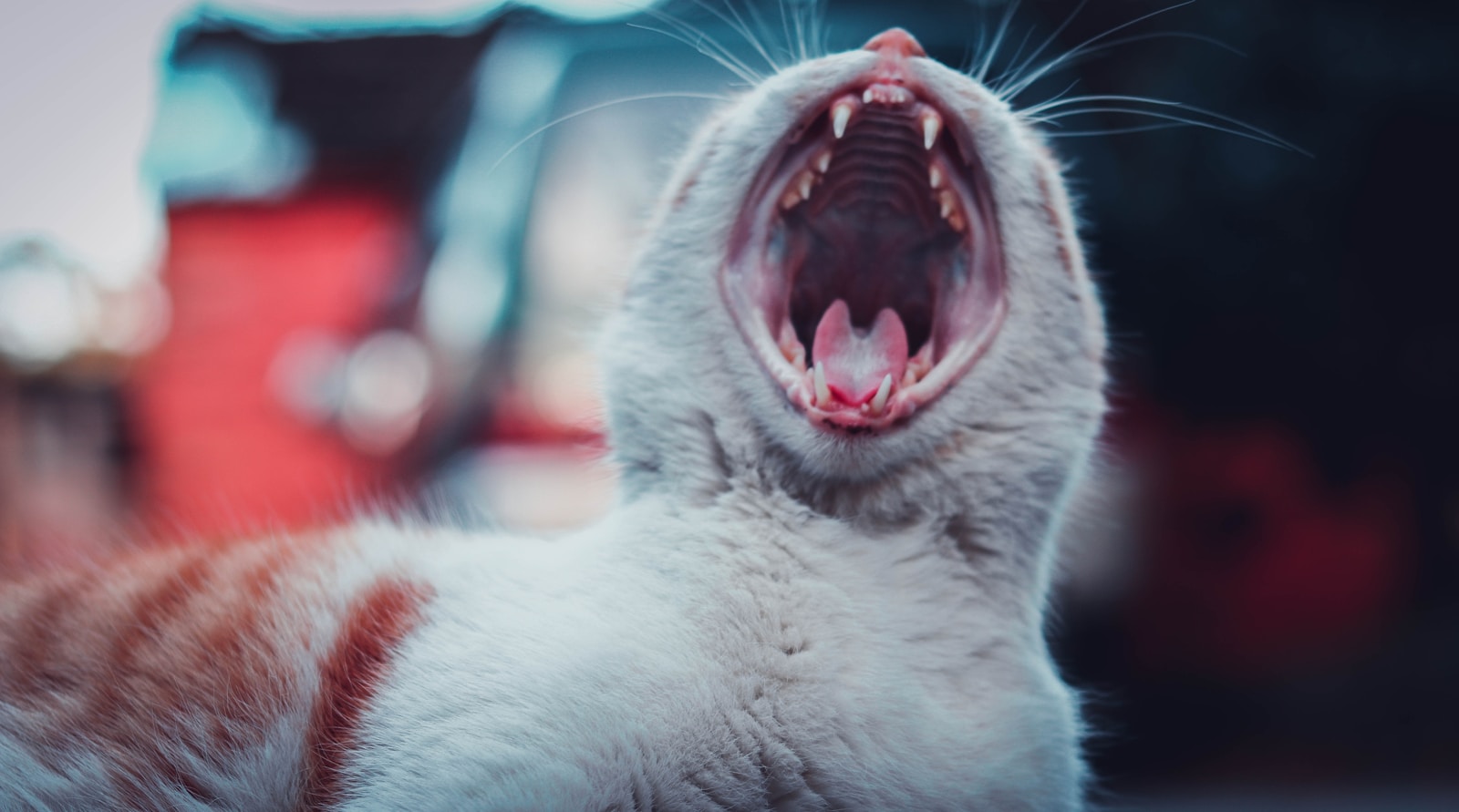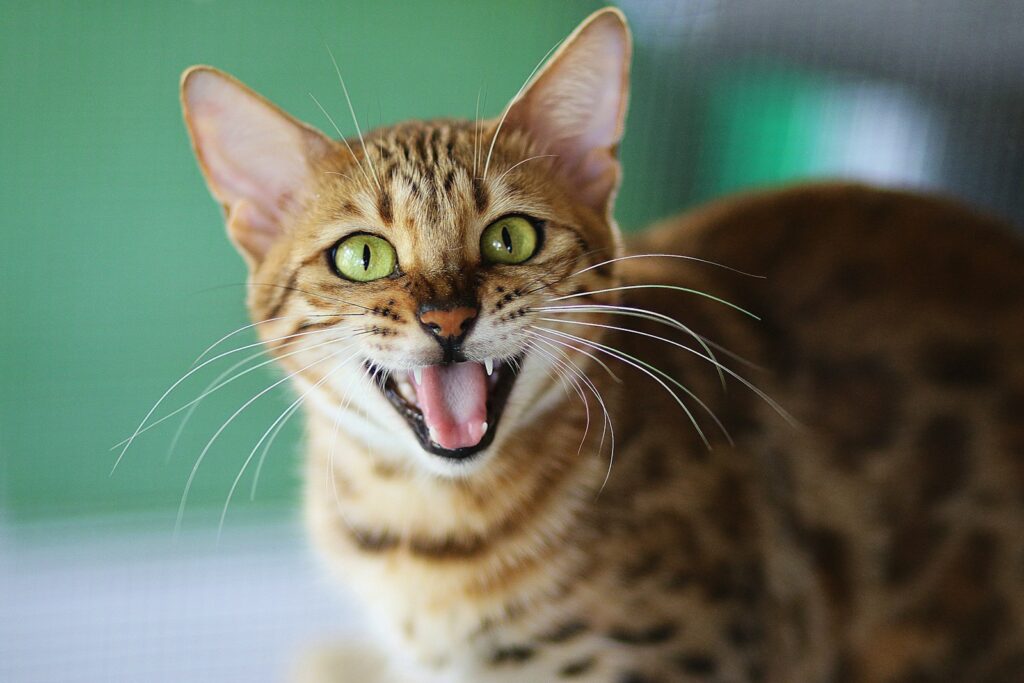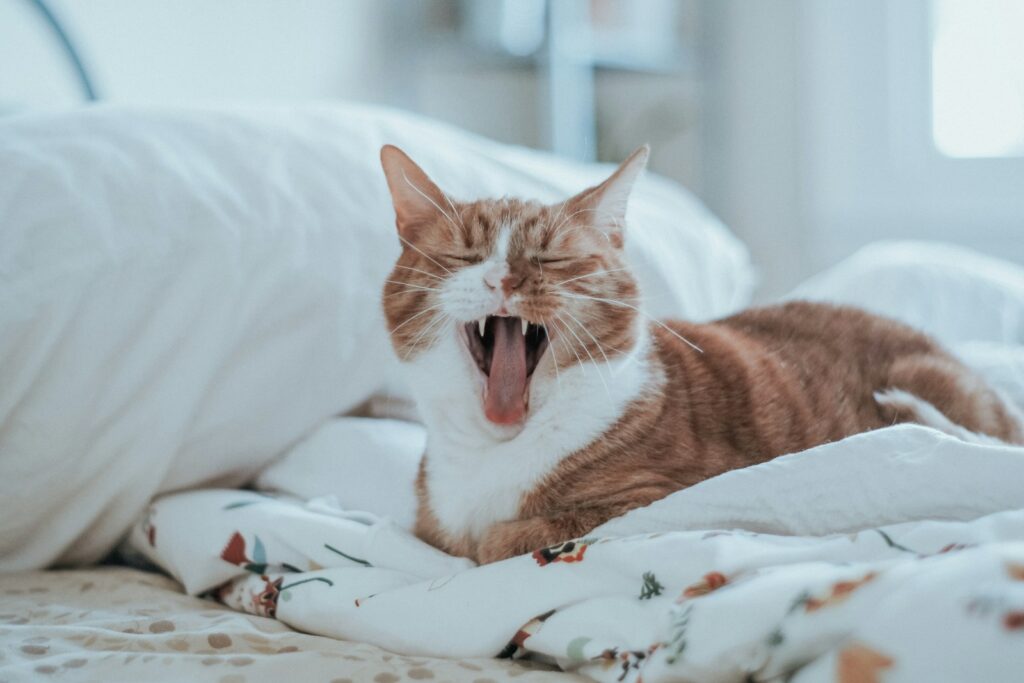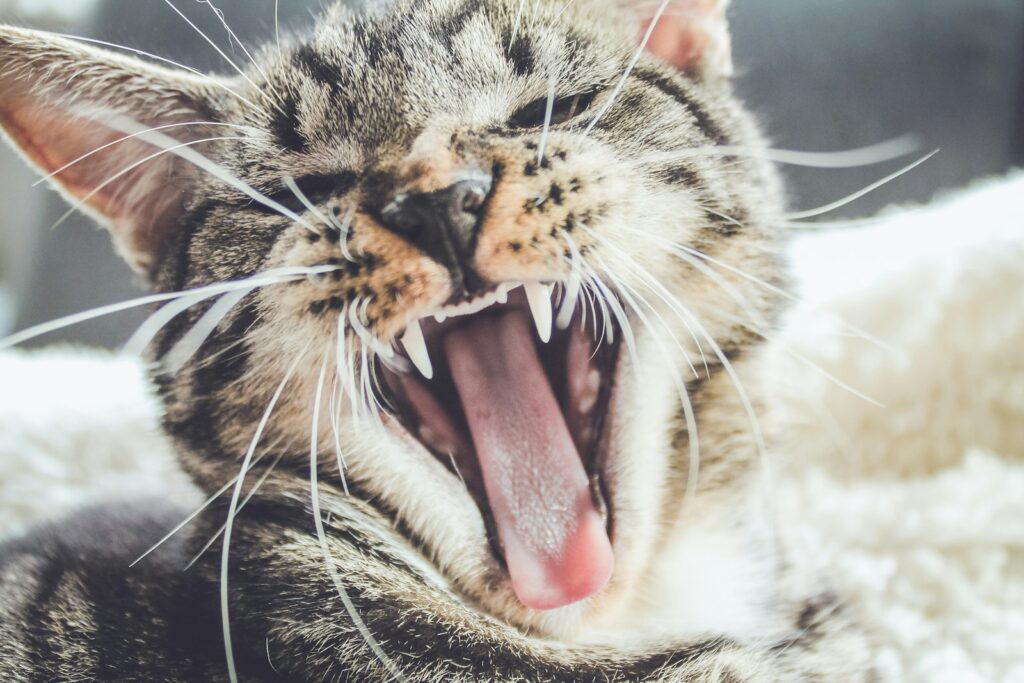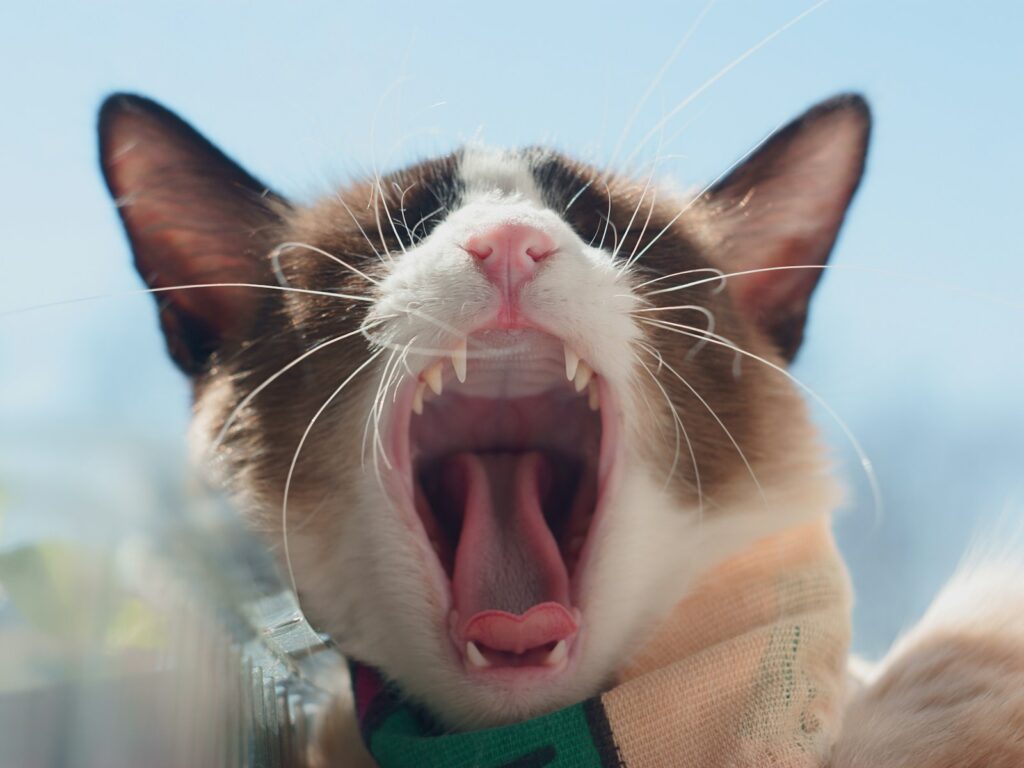Cats are meticulous creatures, from their elegant grooming habits to their keen hunting instincts. But one essential aspect of their health that often goes unnoticed is their teeth. “How many teeth do cats have?” you might wonder. Their tiny teeth play vital roles in eating, grooming, and overall well-being. Yet, cat dental health is often overlooked until dental issues arise.
This guide will not only address how many teeth cats have but also explore their dental development, common dental issues, and tips to ensure your feline friend maintains a healthy mouth.
The Importance of Cats’ Teeth and What They Do
Cats’ teeth serve several vital purposes beyond just chewing their food. Here are the key roles that your feline’s teeth play in their daily life:
- Eating and Chewing Food: Just like in humans, cats’ teeth are essential for breaking down food into smaller, digestible pieces. Their sharp canines are designed for tearing, while their molars help them grind softer foods. This is particularly important for cats as obligate carnivores, as their teeth are specialized for chewing meat.
- Hunting and Capturing Prey: Cats are natural hunters, and their teeth play a critical role in this instinctive behavior. Their sharp incisors and powerful jaws allow them to quickly catch and subdue prey. Even for domesticated cats, playfully “hunting” toys is a behavior rooted in their evolutionary past.
- Self-Defense: A cat’s teeth are also one of their primary tools for self-defense. If threatened, a cat may use biting as a method of protecting themselves against predators or perceived dangers.
- Carrying Objects: Cats often use their teeth to hold or carry objects, whether it’s a toy during playtime or a kitten during maternal care. Their teeth provide the grip they need for these activities.
- Communication: Teeth can also play a secondary role in communication. Cats may show their teeth when hissing or growling as a sign of aggression or warning to others.
Understanding the diverse roles cats’ teeth play highlights the importance of keeping their dental health in check. Regular care, including brushing and professional cleanings, will ensure their teeth remain functional and healthy throughout their lives.
How Many Teeth Do Cats Have? Understanding Cat Teeth First
Cats have two sets of teeth in their lifetime, just like humans. These are:
The Role of Deciduous Teeth in Cats
Deciduous or “baby teeth” or “milk teeth,” play an important role in a kitten’s early development. These tiny, sharp teeth begin to erupt around two to three weeks of age, allowing kittens to start transitioning from nursing to exploring solid foods. Deciduous teeth help kittens begin the process of chewing and tearing their food, a critical step in developing their feeding habits and independence.
Beyond their early feeding purpose, deciduous teeth also aid in the proper alignment and spacing for the adult teeth that will follow. They act as placeholders, ensuring that the permanent teeth can emerge in the correct positions without crowding or misalignment. While these teeth are temporary and typically replaced by permanent teeth around three to six months of age, their health and care are still important to prevent early dental issues that could affect later stages of development.
Proper attention to a kitten’s deciduous teeth, such as regular observation by a veterinarian, helps ensure smooth dental transitions and sets the groundwork for strong, healthy adult teeth.
2. Adult Teeth or Permanent Teeth
By the time kittens reach 5 to 7 months, their baby teeth are replaced by 30 adult teeth. These permanent teeth are stronger and designed to handle a variety of foods, including hard kibble. Adult cats have:
- 12 incisors (small teeth in the front, used for grooming and grasping food)
- 4 canine teeth (long, sharp teeth, also called “fangs,” used for tearing)
- 10 premolars (serrated teeth for slicing meat)
- 4 molars (flat teeth in the back for grinding)
Cats’ permanent teeth play a crucial role in their everyday lives, supporting functions essential for their survival and well-being. These teeth are highly specialized and adapted to their natural behaviors as obligate carnivores. Here are some more of the primary functions of a cat’s permanent teeth:
- Eating and Chewing: Permanent teeth are vital for breaking down food into manageable pieces. Cats use their sharp incisors to nibble and tear, while their canines are designed for piercing and gripping. Their premolars and molars assist in cutting and shearing meat, which is a testament to their carnivorous diet.
- Hunting and Defense: The sharp canines of cats serve as effective tools for hunting prey, allowing them to catch and immobilize their targets with precision. Additionally, these teeth are crucial for self-defense, deterring predators or threats in the wild.
- Grooming: Cats often use their incisors to remove dirt, debris, and loose fur from their coats. This grooming behavior not only helps maintain their cleanliness but also supports their overall health and hygiene.
- Communication and Social Behaviors: Cats rely on their teeth to communicate in some social interactions or displays of aggression. Baring teeth during territorial disputes or conflicts highlights their use in non-verbal communication within their environment.
Proper care and regular dental check-ups ensure that a cat’s permanent teeth remain functional and healthy throughout their lives, allowing them to thrive as both pets and skilled predators.
The Role of Cat Teeth Different Functions for Different Teeth
The teeth in a cat’s mouth serve specific purposes, whether
- Incisors: These tiny front teeth help with grooming and picking up small objects.
- Canines: These iconic, sharp teeth are essential for capturing and killing prey.
- Premolars and Molars: These help cats shred and chew their food, as they’re not designed for grinding like human molars.
Knowing the purpose of each type of tooth highlights the importance of maintaining good dental health for your cat.
Common Cat Dental Issues | What Cat Owners Should Look For
Despite their tough exteriors, cats’ teeth can face various dental problems. Most cats will experience some form of dental disease by age three. Here are the most common issues:
1. Periodontal Disease
This occurs when bacteria in the mouth lead to gum inflammation (gingivitis) and, eventually, damage the bone and tissues surrounding the teeth. Signs include:
- Red, swollen gums
- Bad breath
- Difficulty eating
2. Tooth Resorption
An extremely painful condition where the structure of a tooth begins to break down. It often requires extraction by a veterinarian. Symptoms may include:
- Tooth loss
- Swollen gums
- Reluctance to eat hard food or treats
3. Tartar and Plaque Buildup
Without regular cleaning, tartar buildup along the gum line can lead to infections and other dental problems.
4. Missing Teeth
Cats can lose one or more teeth due to injury, disease, or age. While cats can adapt, missing teeth may affect their ability to eat certain foods.
5. Oral Surgery and Tooth Extraction
Severe dental problems may require oral surgery or tooth extraction to alleviate pain and prevent further damage to the entire mouth.
Caring for Your Cat’s Teeth | Tips to Maintain Dental Health
Cat dental health is crucial for their overall well-being. Here are steps cat owners can take to ensure healthy teeth for their feline friends.
1. Tooth Brushing
Brushing your cat’s teeth is one of the most effective ways to prevent periodontal disease and tartar buildup. Use:
- A cat-specific toothpaste (never use human toothpaste)
- A small toothbrush or finger brush
Start slowly, letting your cat get used to the process. Even a few brushes along the gum line can make a difference.
2. Regular Oral Examinations
Schedule regular check-ups with your veterinarian. They can identify dental problems early and recommend professional cleanings.
3. Provide Dental-Friendly Food and Treats
Opt for dry kibbles designed to reduce plaque or water additives that promote oral hygiene. Avoid hard objects that may damage teeth.
4. Encourage Natural Cleaning
Chewing on dental toys or treats can help reduce tartar buildup naturally. Look for products approved by your veterinarian.
5. Know the Signs of Dental Problems
Be vigilant for red flags like:
- Bad breath
- Swollen gums
- Difficulty eating
- Drooling or pawing at the mouth
Early intervention can prevent minor issues from becoming severe.
Why Cat Dental Health Matters | A Key to a Happy Feline Friend
Healthy teeth are vital for your cat’s overall health. Poor oral care doesn’t just cause pain; it can lead to infections that spread to other parts of the body, including the heart and kidneys. By prioritizing your cat’s dental health, you’re ensuring they lead a longer, happier, and more comfortable life.
If you’re unsure where to start, your veterinarian can provide guidance tailored to your cat’s age, diet, and specific needs.
Helpful Resources on Cat Teeth Care
Here are six valuable resources to help you learn more about cat dental health and care:
- American Veterinary Medical Association (AVMA) – Pet Dental Care: A comprehensive guide from the AVMA on maintaining your pet’s dental hygiene, including tips for cats.
- Cornell University College of Veterinary Medicine – Feline Dental Disease: Expert information on common feline dental diseases and ways to prevent them.
- ASPCA – Cat Care: This site offers general cat care tips, including the importance of dental health for your feline friend.
- International Cat Care – Dental Health: A detailed resource specifically about dental health in cats, including signs of issues and how to maintain their teeth.
- The Humane Society – Cat Dental Problems: Learn about common dental problems in cats and steps to promote better oral health.
- Veterinary Oral Health Council (VOHC): This site provides a list of approved dental products that you can use to keep your cat’s teeth clean and healthy.
These resources are an excellent starting point for any cat owner looking to ensure their pet’s dental health is in top condition!
Kate’s K9 Pet Care is here for all your cat’s needs and services. Check out all our services here!

Final Thoughts | Take Care of Your Cat’s Tiny Teeth
Understanding your cat’s dental health starts with knowing the basics. From their 26 baby teeth to their 30 adult teeth, each set plays an essential role in their life. While cats are skilled at hiding pain, bad breath, swollen gums, or difficulty eating may signal dental problems that need attention.
By incorporating tooth brushing, regular vet visits, and dental-friendly diets into your routine, you can help your feline friend maintain healthy teeth for years to come.
Want to learn more about your cat’s health? Schedule a check-up with your veterinarian to ensure those pearly whites stay in tip-top shape!
